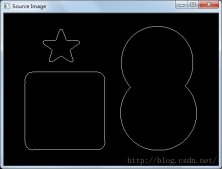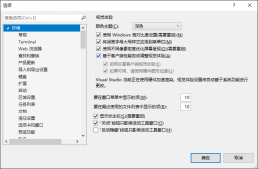C++ 中字符串操作--宽窄字符转换的实例详解
MultiByteToWideChar
|
1
2
3
4
5
6
7
8
9
10
11
12
13
14
15
16
17
18
19
20
21
22
23
|
int MultiByteToWideChar( _In_ UINT CodePage, _In_ DWORD dwFlags, _In_ LPCSTR lpMultiByteStr, _In_ int cbMultiByte, _Out_opt_ LPWSTR lpWideCharStr, _In_ int cchWideChar);参数描述: CodePage:常用CP_ACP、CP_UTF8 dwFlags:0 lpMultiByteStr [in]: 指向待转换字符串。 cbMultiByte [in]: lpMultiByteStr "以字节规格计算"的大小。 设置 0,函数失败; 设置 -1,函数处理整个字符串,包括\0字符串,导致宽字符串也会带有\0字符,返回的长度也包含\0的长度; 设置 >0,根据是否包含\0,返回的结果也会相应调整。 lpWideCharStr [out, optional]: 指向接收宽字符串的缓冲区。 cchWideChar [in]: lpWideCharStr 指向的缓冲区"以字符规格计算"的大小。 设置 0,使 lpWideCharStr 无效,并使得函数返回所需"以字符规格计算"的大小。 |
Code:
|
1
2
3
4
5
6
|
int requiredBufSize = MultiByteToWideChar(CP_ACP, 0, src, -1, NULL, 0);if (requiredBufSize > 0){ WCHAR *pBuffer = new WCHAR[requiredBufSize]; MultiByteToWideChar(CP_ACP, 0, src, -1, pBuffer, requiredBufSize);} |
WideCharToMultiByte
|
1
2
3
4
5
6
7
8
9
10
11
12
13
14
|
int WideCharToMultiByte( _In_ UINT CodePage, _In_ DWORD dwFlags, _In_ LPCWSTR lpWideCharStr, _In_ int cchWideChar, _Out_opt_ LPSTR lpMultiByteStr, _In_ int cbMultiByte, _In_opt_ LPCSTR lpDefaultChar, _Out_opt_ LPBOOL lpUsedDefaultChar);参数描述: lpDefaultChar [in, optional]:NULL lpUsedDefaultChar [out, optional]:NULL 其它参数参考 MultiByteToWideChar |
Code:
|
1
2
3
4
5
6
|
int requiredBufSize = WideCharToMultiByte(CP_ACP, 0, src, -1, NULL, 0, NULL, NULL);if (requiredBufSize > 0){ char *pBuffer = new char[requiredBufSize]; WideCharToMultiByte(CP_ACP, 0, src, -1, pBuffer, requiredBufSize, NULL, NULL);} |
如有疑问请留言或者到本站社区交流讨论,感谢阅读,希望能帮助到大家,谢谢大家对本站的支持!
原文链接:http://www.cnblogs.com/yipingg/p/string_widechar_multichar_switch.html














